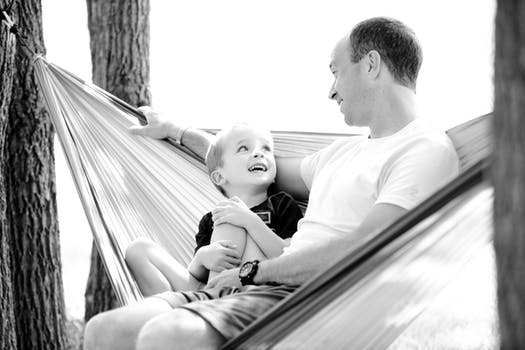Seen and Heard: Growing Language Skills in Children
For parents of young children hoping to boost their
offspring’s language skills, the solution might be simpler than you think: talk
to them. And then, crucially, let them respond to you. Rinse and repeat—and repeat,
and repeat, as much as you can.
In a recent article
from the Journal of Neuroscience, researchers studied 40 healthy young children
(27 male, 13 female) between the ages of 4 and 6 across a range of socioeconomic
backgrounds. Of course, 40 kids is not a large enough sample size to draw any
definitive conclusions, but the study does offer an interesting place to start.
The scientists found that early language exposure is a
pretty good predictor of white matter connectivity between two key language-related
parts of the brain, known as Wernicke’s area and Broca’s area.
Broca’s area handles the movements necessary
to produce speech, while Wernicke’s area aids in understanding speech, and selecting
accurate words to verbalize thoughts.
However, not just any language exposure does the trick: the vital
part seems to be having a dialogue with your kindergartener, a conversational
give-and-take. That’s what builds the good stuff, the strong, coherent white
matter suggesting greater language skills.
And again, these results held true regardless of socioeconomic
status. This is great news for educators looking to close that well-known “word
gap,” made famous by a study which found that children growing up in poverty
hear thirty million fewer words than rich kids by age 3. However, says Anya
Kamenetz of NPR.org, here’s some even better news: the “thirty million words”
study appears to be largely bogus.
Kamenetz notes that this little factoid is based on a
single study conducted 40 years ago, in just 42 families, and that some, like
vocabulary acquisition expert Paul Nation, object to the way in which the data
was collected. These 42 families invited researchers into their homes, Nation
argues, and the presence of an unknown scientist might have brought on
self-consciousness, affecting parental behavior; while working-class adults
might have been intimidated into near-silence, the more affluent parents could
have wound up showing off their education by using a wider variety of words
than usual.
Using more advanced, less obtrusive methods, scientists performed
a tweaked replication of the original experiment with a much larger sample size—329
families this time—and found the word gap to be not 30 million words by age 3,
but 4 million words by age 4. Clearly, there is still a long way to go if we
want to eliminate the gap. But thanks to that recent brain matter study, we may
have a place to start.
Check out Robb’s new book and more
content at www.bestmindframe.com.





Comments
Post a Comment